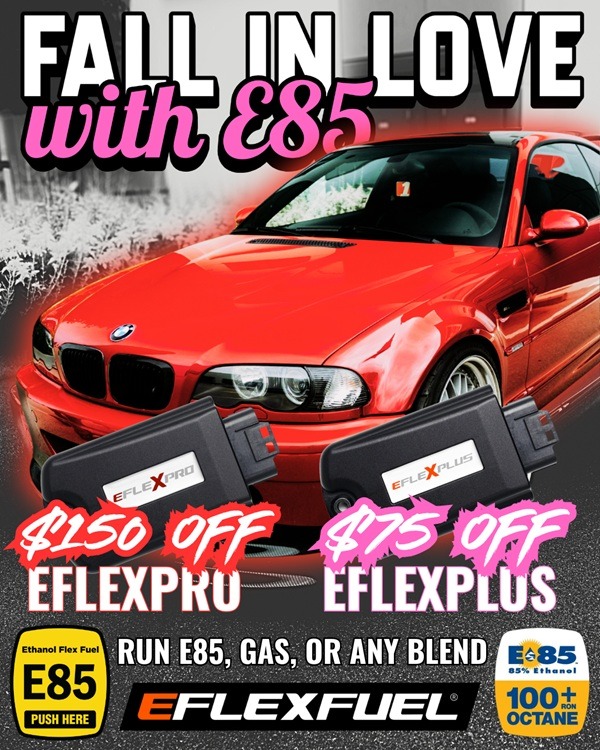8 ENDURING E85 MYTHS
Flex fuel has been around for a while, but it's only gaining popularity. Many drivers still don't understand flex fuel and how it works. Many rumors and misinformation are going around about E85 fuel (the most common form of flex fuel).
Below, you'll find some common questions people have about E85. The answers to these questions have busted many different myths about E85.
1. Does E85 Freeze Or Gel?
No, E85 does not freeze or gel. At least not on planet Earth. Ethanol's freezing point is -237 degrees Fahrenheit. If you find a spot on Earth that is -237 degrees Fahrenheit, you've got a lot more to worry about than your fuel tank!
2. Does E85 Smell Bad Or Smell Like Popcorn When You Burn It In Your Engine?
Some people have reported an unusual smell coming from burning E85 fuel. It doesn't smell like gasoline. Rather, it smells like something else. People have described it as smelling like:
- Sweet-smelling popcorn
- Fermenting corn mash
E85 has a sweet smell to it. It also smells like a mixture of popcorn and alcohol. When your car's running, you shouldn't smell the exhaust fumes coming out of its tailpipe. If there's a strong smell, then there's likely a problem in the exhaust system.
3. Does E85 Shoot Flames?
In an engine that's tuned the right way, the answer is absolutely not. E85 burns almost exactly like gasoline. (More about what's in gasoline in this blog post.) The only difference is E85 burns cooler and more completely. While it would be cool if E85 shot flames, you've got a serious problem if you see it happening in your engine.
4. Does E85 Eat Plastic?
The ethanol in E85 can eat or dissolve some types of plastic. Yet, this is also true of gasoline. The good news is all the plastics in your vehicle's fuel system are fully resistant to the effects of ethanol or gasoline.
5. Does E85 Corrode Aluminum?
Pure E85 does not corrode aluminum. Yet, E85 can absorb water. When there's enough water mixed in with E85, the water in the mixture can corrode aluminum.
The ethanol in E85 is not considered corrosive. That's why it's sold and transported using the exact same equipment for gasoline. If for some reason you had a tank full of ethanol that you had dumped a gallon or two of water into, you might have an issue with corrosion. But that's pretty unlikely.
6. Does E85 Clog Injectors?
No, E85 does not clog injectors. Actually, the opposite is true. Injectors are often clogged by the impurities in gasoline and/or sediment in gasoline fuel tanks. Ethanol is much purer than gasoline. So it does not contain impurities that can clog injectors.
E85 cleans fuel injectors, actually. Ethanol is a very good solvent. That means it can remove the carbon deposits that often appear in injectors. With E85 in your car, your fuel injectors will remain clean and mostly clear of impurities.
7. Does E85 Change Your Exhaust Sound?
Yes and no. It depends on how your engine is running.
The sound of ethanol combustion is not too different from the sound of gasoline combustion. That is, under normal circumstances. But if you install your own custom engine tune, you may notice a change in the way your exhaust sounds. You'll notice a difference if you install one of our eFlexPlus or eFlexPro kits on your vehicle and pick the most aggressive engine tune. The engine will be making more power, so it will sound a little different.
8. Does E85 Detonate Or Knock?
If your engine isn't tuned the right way, E85 will absolutely cause detonation or knock. But that's also true of gasoline. The trick is to make sure you have the right hardware on your vehicle before you pump E85 into your fuel tank.
You don't have to worry about this issue with one of our E85 capability kits. All our E85 capability kits:
- Constantly measure the ethanol content of your fuel (Some OEM E85 systems don't do this)
- Adjust your engine's fuel map to ensure efficiency and power (Some OEM E85 systems don't do this)
Our kits don't compromise your engine in any way. With the right setup, E85 will not cause detonation or knocking. In fact, E85's higher octane rating may improve the engine’s knock resistance capability.

